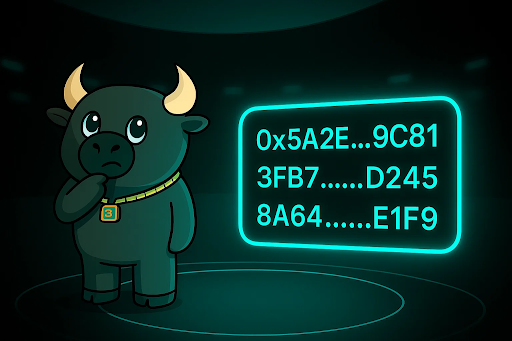What Is a Crypto Wallet Address and Why 90% of Users Use It Wrong.

Every day, thousands of crypto users lose funds not because of hackers, but because they misunderstand a simple concept of their crypto wallet address. Confusing it with private keys, sharing it carelessly, or using it on the wrong network can result in permanent loss. With Bitlock Wallet, users gain full control over their crypto wallet address, ensuring every transaction stays private, secure, and entirely in their hands.With hundreds of blockchains, different address formats, and fake “support” scams everywhere, even experienced traders can make costly mistakes. Knowing how a crypto wallet address really works is the difference between security and total loss.In this guide, you’ll learn what a crypto wallet address is, how it functions inside a non-custodial wallet like Bitlock Wallet, and how to protect your assets while navigating multiple blockchains. Whether you’re a beginner or an advanced user, this article will show you how to manage your wallet address safely with full control, no KYC, and maximum privacy.
What exactly is a crypto wallet address and how does it work?
A crypto wallet address is your public identifier on the blockchain, a digital destination where others can send cryptocurrencies or tokens. It looks like a long sequence of numbers and letters, but behind it lies a complex cryptographic structure that keeps your funds secure. Unlike traditional bank accounts, there is no intermediary. Your wallet address connects directly to your private key, which proves ownership of your assets.
Each wallet address is created from a private key a randomly generated number containing about 256 bits of entropy, meaning there are over 1.16×10⁷⁷ possible combinations. From this private key, a mathematical algorithm generates a public key, and through hashing and encoding, the final wallet address is formed. For example, an Ethereum wallet address always begins with “0x” and contains 42 characters, while a Bitcoin address is usually between 26 and 35 characters long. These variations depend on the specific blockchain protocol and its internal hashing system.
Can I have multiple wallet addresses in one wallet app?
Yes, you can have multiple wallet addresses inside a single wallet app and this is one of the biggest advantages of modern non-custodial wallets like Bitlock Wallet. Each address functions as an independent digital account, but all of them are managed under one recovery phrase. This setup allows you to organize your assets across various blockchains without needing multiple apps or logins.
When you create a wallet, the system generates a master seed phrase (usually 12 or 24 words). From this single phrase, the app can mathematically derive thousands of unique addresses through a standard called Hierarchical Deterministic (HD) wallets. Each new address is linked to your master seed but operates independently, meaning you can hold tokens on different addresses for different purposes trading, staking, or saving all under one secure umbrella. You can read more about this here.
For example, if you are using Bitlock Wallet, you can have one address for Ethereum, another for Polygon, and a third for Solana all visible and manageable in one dashboard. The wallet automatically detects supported blockchains and assigns unique addresses that comply with their individual standards. This makes Bitlock a true multichain solution, removing the need to switch between multiple apps or perform complex imports.
How does Bitlock Wallet ensure security for your wallet address and private keys?
Bitlock Wallet is built around one core principle: you own your keys, you own your crypto. As a fully non-custodial wallet, it never stores or transmits your private keys, seed phrases, or transaction data to external servers. Everything happens locally on your device, secured with encryption and biometric authentication. This ensures that even if Bitlock’s servers were compromised, your funds and wallet addresses would remain completely safe.
When you create a new Bitlock Wallet, the app generates a 12-word Secret Recovery Phrase using true random entropy. This phrase can recreate your private keys on any device but is never uploaded online. Your wallet address, the public identifier used for transactions, is derived mathematically from this private key. The relationship between the two is one-way: while a private key can generate a public address, it is mathematically impossible to reverse the process and guess your private key from your wallet address.
Our thoughts
Understanding what a crypto wallet address is and how it connects to your private key is fundamental for anyone entering Web3. Too many users treat wallets like apps instead of what they really are: cryptographic tools that define ownership on the blockchain. Once you realize that your wallet address represents you on the network, security becomes personal, not optional.
That’s why Bitlock Wallet takes a different path. It removes unnecessary intermediaries, gives users control of their keys, and builds privacy directly into the experience. In a space where most tools demand KYC and data collection, Bitlock’s non-custodial model keeps your identity and assets separate. You stay anonymous, yet fully empowered to send, receive, and trade across chains.
Source link





